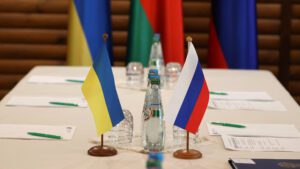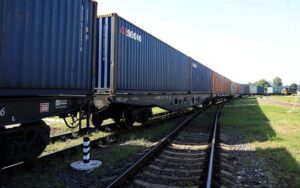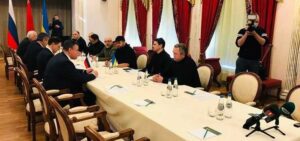
Content creators who use the YouTube video hosting website will no longer be able to receive income from Russian audiences, the company said in a statement.
YouTube said they would extend the suspension onto all monetization opportunities, including YouTube Premium and Music Premium subscriptions, channel sponsorship, super-chats, super-stickers and merchandise for Russian viewers.
This means YouTube content creators will temporarily be unable to monetize on views in Russia.
YouTube noted that the decision would not apply to earnings from views outside of Russia.
Google and YouTube Ads were shut down in Russia earlier, thus depriving YouTube content creators of the opportunity to make money on ads viewed by Russian users.
Google said earlier that it was suspending payments for Google Play products by Russian users, which prevented them from buying new applications or extending subscriptions to applications in use.
Russian users reported that it is no longer possible to subscribe to YouTube Premium, which allows watching videos without ads.
Meanwhile, the Visa and MasterCard payment systems stopped service for Russian cards on March 10. Cards issued in Russia will continue to work inside the country but will be inactive abroad. Cards issued outside of Russia will not work in the Russian territory.

British American Tobacco (BAT), one of the world’s largest manufacturers of tobacco products in the world, has suspended its work and business operations in Ukraine due to the military invasion of the Russian Federation, while in the Russian Federation the corporation will suspend all planned capital investments and “rationalize its marketing activities”.
The corresponding statement was posted on the corporation’s website on Wednesday.
“In Ukraine, we have suspended all business and manufacturing operations and are providing all the support and assistance we can to our colleagues, including relocation and temporary accommodation. Our businesses bordering Ukraine are providing assistance to the humanitarian relief effort. In Russia, we have a full establishment of our people right across the country, including substantial local manufacturing. Our business in Russia continues to operate. As a key principle we have a duty of care to all our employees at this extremely complicated and uncertain time for them and their families,” it said in the report.
“We are deeply concerned about the conflict in Ukraine. The safety and wellbeing of our people there and across the region is our first priority. We have full local establishments of 1,000 people in Ukraine and 2,500 in Russia. Our thoughts are with them all at this incredibly difficult time,” the report says.
“We have suspended all planned capital investment into Russia and will focus on our portfolio of locally produced tobacco products – including our heated tobacco products. Furthermore, we are scaling our business activities appropriate to the current situation, including rationalizing our marketing activities. This fast-moving and complex situation demands us to constantly assess a wide range of factors and considerations. We are complying, and will continue to comply with, all international sanctions related to this conflict in full,” the company said.

Consumer goods giant Unilever has said that the company continues to condemn the war in Ukraine, has stopped business operations in Ukraine and has suspended all imports and exports of our products into and out of Russia.
“We continue to condemn the war in Ukraine as a brutal and senseless act by the Russian state. Our business operations in Ukraine have stopped and we are now fully focused on ensuring the safety of our Ukrainian employees and their families, including helping with their evacuation where necessary, and providing additional financial support,” Unilever CEO Alan Jope said in a statement posted on the company’s website.
He said that the company has suspended all imports and exports of our products into and out of Russia, and we will stop all media and advertising spend.
“We will not invest any further capital into the country nor will we profit from our presence in Russia. We will continue to supply our everyday essential food and hygiene products made in Russia to people in the country. We will keep this under close review,” he said.
“We join calls for an end to this war and hope that peace, human rights, and the international rule of law will prevail,” he said.
Unilever brands include Lipton, Dove, Vaseline, Cif, Signal, Domestos, Rexona AXE, Chistaya Liniya, Barkhatnye Ruchki and Inmarko.
In Ukraine, the company has a tea factory in Hostomel near Kyiv, which is the scene of heavy fighting.
In Russia, it has ice cream plants in Tula Region and Omsk, tea, cosmetics and household cleaner production facilities in St. Petersburg, and a cosmetics factory in Yekaterinburg.

Advisor to the Head of the President’s Office Mykhailo Podoliak said the third round of talks between Ukraine and Russia has ended, there are some positive developments in improving the logistics of humanitarian corridors.
“The third round of negotiations has ended. There are some positive developments in improving the logistics of humanitarian corridors… Intensive consultations have continued on the basic political block of the settlement, along with a ceasefire and security guarantees,” he said on Twitter on Monday evening.

JSC Ukrzaliznytsia, taking into account the material losses inflicted on Ukraine by the Russian Federation and Belarus, will not return their freight cars to Russian and Belarusian owners, Deputy Director of the Department of Commercial Work of Ukrzaliznytsia Valeriy Tkachev said on his Facebook page on Thursday night.
According to him, over the past 24 hours, the owners of Belarusian and Russian railcars began to contact the Center for Transport Logistics of Ukrzaliznytsia with demands for redirection and return of their rolling stock, which is now in Ukraine.
“Looking at the material damage caused to Ukraine – the aggressor country (Russia) and its ally (Republic of Belarus); and most importantly, given the thousands of innocent victims killed by the invaders… all rolling stock, cargo and other things will not be returned to the occupying countries!” Tkachev said.

At the moment, it is not known when new negotiations with the Russian Federation will take place, said Ukrainian Foreign Minister Dmytro Kuleba.
“We are ready for negotiations, we are ready for diplomacy, but we are by no means ready to accept any Russian ultimatums. It is unknown at the moment when the new negotiations will take place,” Kuleba said on his Facebook on Wednesday.
He added that the demands of the Russians remain unchanged. “These are the demands that Putin voiced in his address before the start of the war, in fact declaring war on us,” Kuleba said.